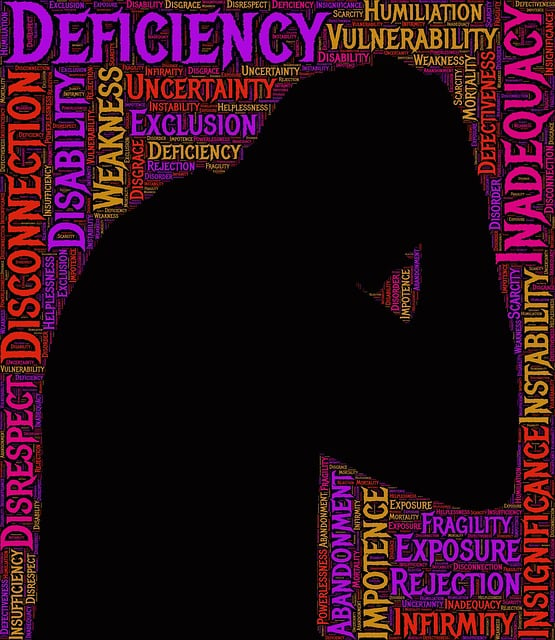Longmont cancer patients face significant mental wellness challenges beyond physical therapy, with anxiety and depression hindering coping abilities. Self-assessment tools tailored for these patients can detect and intervene early, promoting emotional well-being management strategies post-therapy. By integrating burnout prevention and self-care practices into cancer care frameworks, patient outcomes improve by supporting both patients' and caregivers' mental health and resilience. These tools use cognitive behavioral therapy (CBT) and crisis intervention techniques to offer personalized recommendations for coping skills development. Implementing these tools requires strategic partnerships between local organizations and healthcare providers, leading to widespread distribution, education, and open discussions about mental health. Success is measured through participation rates, user feedback, and improvements in self-reported mental wellness over time.
In Longmont, cancer patients face unique mental wellness challenges. This article explores how self-assessment tools can improve support systems for these individuals, addressing a pressing gap in local cancer care. We delve into evidence-based practices for designing effective tools tailored to Longmont’s cancer patients, focusing on accessibility and usability. By implementing these strategies, the community aims to enhance therapy outcomes and overall mental health management for those confronting cancer issues.
- Understanding Mental Wellness and Its Impact on Cancer Patients in Longmont
- Identifying the Gap: Assessing Existing Support Systems and Tools for Cancer Care
- Designing Self-Assessment Tools: Incorporating Evidence-Based Practices for Mental Health
- User Experience and Usability: Ensuring Accessibility and Effectiveness for Longmont Cancer Patients
- Implementation and Impact: Strategies for Rolling Out and Measuring Success in the Community
Understanding Mental Wellness and Its Impact on Cancer Patients in Longmont

In Longmont, cancer patients often face unique challenges beyond physical treatment. Understanding mental wellness is crucial in addressing these issues, as it significantly impacts overall well-being. Cancer can lead to a myriad of mental health concerns, including anxiety, depression, and fear, which may hinder the patient’s ability to cope with their diagnosis and treatment process effectively. Many patients struggle silently, often due to the stigma surrounding mental illness, further exacerbating their stress levels.
The development of self-assessment tools tailored for cancer patients in Longmont can play a pivotal role in early detection and intervention. These tools aim to foster coping skills development by providing individuals with strategies to manage their emotional well-being during and after therapy. By reducing the mental illness stigma, such initiatives encourage open conversations about mental health, creating a supportive environment essential for holistic patient care.
Identifying the Gap: Assessing Existing Support Systems and Tools for Cancer Care

In the realm of cancer care, understanding and addressing mental wellness is a crucial aspect often overlooked within the existing support systems. Longmont Cancer Issues Therapy highlights the gap between physical treatment and psychological well-being, emphasizing the need for comprehensive tools to cater to patients’ mental health needs. Many current support structures primarily focus on managing symptoms and providing medical advice, neglecting the emotional challenges that arise during and after cancer treatment.
This gap in support systems is particularly evident when considering the high prevalence of burnout among healthcare providers who care for cancer patients. Implementing effective burnout prevention strategies for healthcare providers can enhance patient outcomes by ensuring caregivers maintain their compassion and resilience. Integrating self-care practices and compassion cultivation practices into existing cancer care frameworks could be a game-changer, offering much-needed mental wellness support alongside traditional therapy.
Designing Self-Assessment Tools: Incorporating Evidence-Based Practices for Mental Health

Designing self-assessment tools for mental wellness is a meticulous process that requires a blend of psychological expertise and innovative technology. These tools play a pivotal role in early detection, crisis intervention (Longmont Cancer Issues Therapy), and guiding personalized therapy plans. Incorporating evidence-based practices ensures their efficacy and reliability. For instance, integrating components from recognized therapeutic approaches such as cognitive behavioral therapy (CBT) can enhance the tool’s ability to assess and promote positive thinking and social skills training (Crisis Intervention Guidance).
The development process should start with a comprehensive literature review to identify key indicators of mental health. This step is crucial in selecting relevant assessment metrics, ensuring the tool captures a holistic view of an individual’s psychological state. Additionally, user-friendliness is essential; intuitive interfaces and straightforward language simplify engagement, encouraging consistent use. Feedback from both professionals and users will be vital for refining these tools, aligning them with current mental health trends and best practices.
User Experience and Usability: Ensuring Accessibility and Effectiveness for Longmont Cancer Patients

Developing self-assessment tools for mental wellness must prioritize user experience and usability to be effective for Longmont cancer patients navigating their journey. These tools should be designed with an intuitive interface, clear navigation, and simple language to cater to diverse literacy levels. Accessibility features such as adjustable font sizes, contrasting colors, and audio options are crucial to ensure all patients can engage with the assessments comfortably.
Effective self-assessment tools for Longmont cancer patients should not only evaluate mental health but also provide tailored recommendations for emotional well-being promotion techniques and coping skills development. By incorporating interactive elements and personalized feedback mechanisms, these tools can enhance patient engagement and improve outcomes. Moreover, integrating communication strategies that allow patients to share their assessments with healthcare providers facilitates continuous care and support during therapy.
Implementation and Impact: Strategies for Rolling Out and Measuring Success in the Community

Implementing mental wellness self-assessment tools within communities, especially those grappling with specific challenges like cancer issues in Longmont, requires a strategic approach to ensure maximum impact and positive outcomes. One effective strategy is to partner with local organizations and healthcare providers who can facilitate the distribution and education surrounding these tools. This collaborative effort ensures that the right message reaches the most people, fostering open discussions about mental health and encouraging early intervention.
Measuring the success of such initiatives involves tracking key metrics like participation rates, user feedback, and improvements in self-reported mental wellness over time. Stress management workshops and mindfulness meditation sessions can be integrated into the assessment tools to empower community members with coping strategies. By regularly evaluating these programs, organizations can adapt their approaches, ensuring that they cater to the unique needs of the Longmont population while promoting long-term mental well-being.
The development of mental wellness self-assessment tools tailored for Longmont cancer patients is a significant step towards addressing the unique challenges they face. By incorporating evidence-based practices and focusing on user experience, these tools can enhance accessibility to mental health support within the community. This initiative has the potential to significantly impact long-term patient outcomes and overall well-being in Longmont, fostering a more holistic approach to cancer care.














